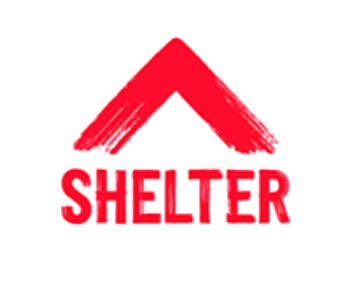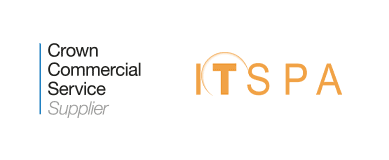Charity works hard to retain vital contributions from supporters
UK-based charity Shelter was created to help alleviate the distress caused by homelessness and bad housing. Its nationally-based team works hard to provide advice, information and assistance to people in need while campaigning for political change to end the UK’s housing crisis.
Like all charities, Shelter uses a variety of fundraising methods to generate income to keep the charity in operation and help those in need. Most supporters donate through monthly direct debit contributions after signing up with on-the-street or door-to-door fundraisers. Paul Butland, Early Retention Manager at Shelter, says:
“Unfortunately, this is also the method with the highest rate of cancellation. My role within Shelter is to try and retain new supporters in the first three months of signing up. It’s a crucial period of time during which people need to feel welcome and valued so they’re more likely to continue contributing their monthly gifts.”
Innovative campaign idea supports greater fundraising opportunity
To help supporters better understand the true value of their contributions, Butland has introduced a new initiative which is in the pilot phase. The initiative, called ‘Welcome Calling’ relies on a small team of agents to contact all new contributors soon after they sign up.
“The call serves a number of purposes. It's designed to get contributors to stay with us, but also works as a form of quality control, to check people’s details are correct, for example.”
But to increase the success rate of Welcome Calling, Butland has also devised a way to show genuine thanks to contributors. “I was convinced we could add more value to calls” he says.
“Shelter is one of the largest charities for homelessness and housing issues in the UK. And a lot of people Shelter helps really want to give back or get involved with Shelter. So, as part of the scheme, we’ve hired people who Shelter has helped, to make the calls. These people, who were once unemployed or homeless, are truly in the best position to understand the value of Shelter’s work and convey that to our supporters.”
New venture shapes specific telephony needs
Shelter’s Sheffield-based call centre manages the freephone number for inbound calls. But until recently, the charity has never run any in-house telemarketing or fundraising campaigns or used an automated system for outbound dialling.
To support Welcome Calling, which began as a trial in December 2013, Shelter needed to find a cost-effective telephony system which could be scaled up if required. Butland says:
“I researched cloud-based automated diallers because we needed a flexible system that enabled people to work remotely or log on at different access points. In future, we also want to make calls from different locations. But because it was a test, we didn’t want to spend a lot of money on software and licenses or pay a fortune for calls.”
I researched cloud-based predictive dialers because we needed a flexible system that allowed people to work remotely or log on at different access points.
Hostcomm's Hosted Predictive Dialer provides cost-effective telephony support
Butland’s research led him to Hostcomm, which offers the Hosted Predictive Dialler hosted automated predictive dialler. Not only did Hosted Predictive Dialler meet all the charity’s requirements, it also met strict security guidelines with a hardened firewall and SSL server to prevent non-authorised access to the dialler and its access sessions.
This is critical for a charity that needs a consistent, available telephone service and can’t afford potential hacking risks.
The Hosted Predictive Dialler
Contact lists are loaded into the dialler which contacts each contributor automatically. When a call connects, the agent thanks the contact for supporting the charity and describes how his or her donation makes a difference.
The agent also checks the supporter’s details and asks for feedback. “By showing contributors that their support really helps, we believe it’s more likely that we can secure a long-term, regular donation,” says Butland.
Calling standards compliance
Hostcomm's Hosted Predictive Dialler is configured to comply with Ofcom regulations. These set the acceptable calling standards within which call centres must remain, as well as those stipulated by Shelter’s own fundraising code of practice.
We set call attempts so we don’t call people more than twice in a day, or, if a call drops, we don’t call back. We also use an alert function within the dialler which reschedules the call if the dialler calls at an awkward time. Without Hosted Predictive Dialler, we’d have to keep a really close eye on all these things, but the dialler manages them for us.
New campaigns are set up quickly and cost-effectively
Hostcomm's Hosted Predictive Dialler gives Shelter the scope to experiment with a variety of call types for fundraising or other activities. Now that the charity has an in-house outbound calling team and a flexible dialler that will scale up or down to meet its needs, it can introduce new campaigns that Shelter has never implemented before.
Butland says: “In the past, we’ve had tele-fundraising ideas that we’ve not carried out. It takes time and effort to set up a campaign, and for it to be worthwhile or cost-effective, we have to achieve a certain volume of leads. It meant that smaller, bespoke campaigns were too risky to implement. With Hosted Predictive Dialler, we can get new campaigns up and running regardless of how small they are and without months of planning.”
Hosted Predictive Dialler is flexible and easy to adapt, enabling the charity to build each campaign quickly and easily. Butland says: “We can populate the dialler with the information agents need to talk to contributors and respond to their enquiries. The setup functionality is user-friendly and intuitive. It offers features such as the form builder, allowing us to load in our own scripts, questionnaires or pop-up reminders or alerts. We can also reuse old campaigns by adjusting them to meet a different set of needs.”
We can populate the dialler with the information agents need to talk to contributors and respond to their enquiries. The set-up functionality is user-friendly and intuitive.
Agents can contact more people to secure long-term contributions
The automated dialler increases the amount of talk time for Shelter’s agents. They don’t have to waste time listening to engaged signals or calling people who don’t answer, giving them a greater chance of securing long-term commitments from contributors.
In future, the charity hopes to use the dialler to expand Welcome Calling as well as introduce new fundraising campaigns. “Hostcomm Hosted Predictive Dialler opens up new opportunities for us without the worry of additional costs,” says Butland. “Whatever we do, we’ll continue with this new model of support - finding new ways to include people who’ve directly benefited from our services in our campaigns.”
Hostcomm delivers a flexible, hassle-free experience
Shelter has to operate within financial boundaries and restrictions that many charities face. It was concerned about using the Hostcomm Hosted Predictive Dialler service because its pay-as-you-go format requires a means of electronic payment that ensures credit is always available.
As charities use different systems to pay their expenses, Shelter was worried that credit would run out unexpectedly, leaving the call centre agents unable to use the phones. Butland says: “Hostcomm kindly accommodated a payment structure that worked with our needs as a charity. Now we’re sure that we won’t run out of credit when someone’s not available to top it up.”
Hostcomm has been so helpful and its team listened to our needs right from the start. Setting up Hosted Predictive Dialler has been a hassle-free and stress-free experience, free from software or licenses, easy to use and simple.













